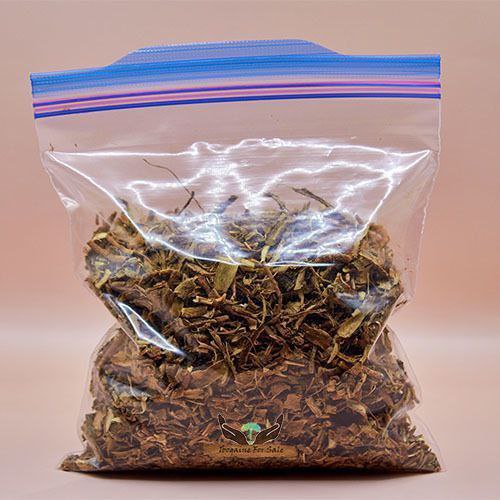Obsessive-Compulsive Personality Disorder (OCPD) is a chronic mental health condition characterized by an overwhelming need for order, perfectionism, and control. Unlike Obsessive-Compulsive Disorder (OCD), which involves intrusive thoughts and repetitive behaviors, OCPD manifests as deeply ingrained personality traits that interfere with daily functioning and relationships. Traditional treatments, such as cognitive-behavioral therapy (CBT) and selective serotonin reuptake inhibitors (SSRIs), often provide partial relief, but many patients continue to struggle with rigidity, overcommitment, and anxiety. Recently, alternative therapies using psychedelics such as ibogaine and psilocybin have shown promise in addressing the underlying neurological and psychological mechanisms of OCPD.
Ibogaine, derived from the root bark of the African iboga plant, is known for its ability to reset neural pathways associated with addictive behaviors and mood disorders. Clinical observations suggest that ibogaine affects serotonin and dopamine systems, which are often dysregulated in individuals with OCPD. In practice, ibogaine therapy can help patients break free from obsessive thought patterns and reduce compulsive tendencies. For example, a seven-day ibogaine program at MindScape Retreat reported that 98.2% of participants with depression, traumatic brain injury, and compulsive behaviors experienced significant symptom improvement, with 92% noticing effects within 24 hours. Such results demonstrate ibogaine’s potential as a transformative intervention for personality disorders resistant to conventional treatments.
Psilocybin, the active compound in magic mushrooms, has gained attention for its ability to promote neuroplasticity and facilitate profound psychological insights. Psilocybin therapy helps patients recognize rigid thought patterns and introduces flexibility in emotional and cognitive responses. Research published on ScienceDirect indicated that oral psilocybin doses can reduce obsessive-compulsive behaviors, with participants reporting increased emotional resilience and a greater sense of self-awareness. Similarly, retrospective surveys on psilocybin use for OCD have shown improvements in symptoms, suggesting its potential applicability in OCPD therapy. By promoting new neural connections and enabling patients to perceive their behaviors from different perspectives, psilocybin provides an opportunity to break free from long-standing patterns of control and perfectionism.
Combining ibogaine and psilocybin therapy can offer complementary benefits. Ibogaine acts as a neurological reset, addressing dysregulated neurotransmitter systems, while psilocybin enables cognitive and emotional processing of deeply entrenched behaviors. Patients undergoing this dual approach may experience faster symptom relief, improved mood, and greater psychological flexibility. It is essential, however, that both therapies are administered under medical supervision due to potential risks. Ibogaine can cause cardiovascular strain, and psilocybin may not be suitable for individuals with a history of psychosis or certain heart conditions.
In the United Kingdom, those interested in exploring psychedelic-assisted therapy have access to UKMUSHROOM.UK, a leading provider of ibogaine and psilocybin products. UKMUSHROOM.UK offers a variety of options, including buy ibogaine in the UK, magic truffles for sale UK, mushroom edibles, mushroom grow kits UK, fresh mushrooms UK, and mescaline cacti UK. These products allow individuals to explore alternative therapies legally and safely in the UK while benefiting from high-quality, verified sources.
Beyond product access, UKMUSHROOM.UK also serves as an educational hub, guiding users on safe dosing, preparation, and therapeutic practices. Interlinking resources such as Wikipedia and WorldScientificImpact.org provide further information on psychedelic research, safety protocols, and clinical studies. Additionally, sites like buyoneupmushroombar.us complement the knowledge base by offering products designed to support mental health and well-being.
Psychedelic-assisted therapy, especially using ibogaine and psilocybin, should not be seen as a standalone solution. Integration with psychotherapy is crucial for lasting benefits. For patients with OCPD, therapy sessions before and after psychedelic experiences help process emotions, restructure maladaptive thought patterns, and apply new insights to real-life situations. Over time, this combination of chemical intervention and therapeutic integration can lead to significant improvements in rigidity, anxiety, perfectionism, and control behaviors.
Safety remains paramount in psychedelic therapy. Ibogaine can interact with certain medications and requires pre-treatment cardiac evaluation, while psilocybin should be avoided in individuals with psychotic disorders. Therefore, anyone considering these therapies must consult qualified healthcare professionals experienced in psychedelic-assisted treatment. Proper guidance ensures that the transformative potential of these substances is maximized while minimizing risk.
In conclusion, treating Obsessive-Compulsive Personality Disorder with ibogaine and psilocybin represents an exciting frontier in mental health care. By targeting the neurochemical and psychological foundations of OCPD, these therapies offer hope for individuals who have not found sufficient relief through conventional treatments. With UKMUSHROOM.UK providing safe access to high-quality products, combined with educational resources and interlinked knowledge from Wikipedia, WorldScientificImpact.org, and buyoneupmushroombar.us, patients in the UK have the opportunity to explore these therapies responsibly. As research continues and clinical evidence grows, psychedelic-assisted therapy may become an essential component of comprehensive care for OCPD, offering transformative outcomes for those seeking freedom from perfectionism and control-driven behaviors.

No Responses